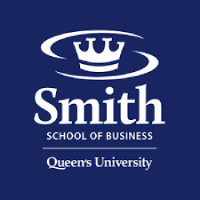Endorsements
Geoff Ballotti
“Alex Mirza’s research provides compelling insights for what hospitality stakeholders must do to build human capital and achieve a higher purpose in these extraordinary times. Talent Disruption is not just recommended reading, it is required.”

- Geoff Ballotti, President & CEO of Wyndham Hotels & Resorts, and recipient of the Arne Sorenson Social Impact Leadership Award

Leonard A. Schlesinger
“There Is a huge need to update our traditional HR logic in the face of the dramatic changes that have befallen the hospitality industry. With Talent Disruption, Alex Mirza has taken that step and advanced our understanding of how to use the new technology tools to address the considerable talent issues facing service firms. This is an absolute must read!”

- Leonard A. Schlesinger, Baker Foundation Professor, Harvard Business School and co-author of landmark bestseller The Service Profit Chain

Jonathan Bush
“As large language models automate away busy work, building human capital is a monumental issue facing the healthcare industry. Alex Mirza’s book provides a marvelous pragmatic road map to meritocracy, innovation and pay for performance in any service industry. A must read!”

- Jonathan Bush, CEO of Zus Health and Co-founder CEO, Athena Healthcare

Gary Loveman
“My management colleagues and I understood thoroughly the first order differences in performance associated with variation across talent among property leaders, and the financial consequences of these differences. Likewise, we could measure the often ten fold difference in both productivity and service quality across talent among front line employees. The problem was what to do about it, at scale.

- Gary Loveman, Chairman and CEO of Well, Former Chairman and CEO Caesars Entertainment, Part Owner Boston Celtics

Harry Gross
“All of us in the hospitality industry know we are facing a crisis in recruiting and retention. Talent Disruption goes beyond diagnosing the problem and charts a path forward using data- and AI-driven strategies to revolutionize human capital. Alex brings a fresh approach to solving talent discovery and empowerment in the service sector. A highly recommended read.”

- Harry Gross, Real Estate Developer and Chairman of G. Holdings LLC
Rick Vanzura
“While Talent Disruption focuses on the disconnects between talent management, compensation and value creation in the hotel industry, the insights are equally applicable to the restaurant and retail industries. As Mirza creatively and powerfully illustrates, talent is a highly leverageable and brandable differentiator, and companies should design compensation systems and marketing programs to fully leverage that power and value.”

- Rick Vanzura, CEO of Freight Farms, and former CEO, Wahlburgers and Panera Bread

Douglas Tutt
“Speaks to the alarming labor challenge confronting the hospitality industry and the imperative to change the model and innovate for how labor is engaged and retained within the sector.”

- Douglas Tutt, CEO of HCareers, leading U.S. hospitality, senior living and gig economy employment site.

Adam Burke
“Our industry faces a foundational challenge in rethinking traditional business models to rebuild our talent pipeline and, once again, become an employer of choice. As one of hospitality’s most innovative thought leaders, Alex’s work comes at a pivotal time, providing much-needed, research-based answers to the most critical questions facing today’s travel and tourism executives.”


Wilburt Chang
“With the world in flux and the hospitality industry at a crisis point, we are currently at the precipice of a new era of AI-driven upheaval and post-pandemic paranoia. Alex Mirza gives us a clear and concise road map to navigate these rough waters, with insights on how to harness the technological tools in our marketplace and to filter and analyze the vast amounts of data at our fingertips. Talent Disruption is a must read for anyone who is interested in maximizing and optimizing talent development.“


Beverly K. Carmichael
“Provocative! Alex has done a masterful job of assembling data to help drive better decisions around human capital and rightly challenges old ways of thinking about talent. Whether you agree with all his conclusions or not, it is not debatable that employees must always be a top priority. Otherwise, your organization will struggle and never realize its full potential.”

Alex Dixon
“If you are a CEO feverishly looking for Artificial Intelligence insights to revolutionize your business, look no further. Talent Disruption equally educates and empowers you to embrace the change emerging within talent broadly and hospitality specifically. Decoding the intangible power of the immigrant experience is the byproduct of this fascinating journey led by Alex Mirza.”


Thomas Magnuson
“Alexander Mirza does what leaders do. He sees what is unseen, and in this book issues a rallying cry to accelerate the value of hospitality’s main driver, the people who power it.”


Joe Rice
“Talent Disruption sheds light on an undeniable truth: hospitality is losing ground in the talent marketplace. Through in-depth research, Alex Mirza provides an applicable and disruptive roadmap for building a talent-centric culture that can drive innovation, growth, and competitive advantage in the industry.“


David Detomasi
“Few people could do what Alex Mirza has done – written a book on Talent Management and Disruption that combines both hard data analysis with proven managerial insight. Building on his decades of experience and proven leadership in the hospitality industry, he has produced a rigorous and accessible book that should be required reading for anyone hoping to grapple with the modern talent management challenges this industry faces.”


Anita Gupta
“Talent Disruption by Alex Mirza is a game-changing exploration of the evolving service industry landscape. With its cutting-edge insights on AI-driven HR solutions and employee empowerment, this book paves the way for a revolutionary approach to talent management. Discover your blueprint for success in this indispensable read.”


Benedict Cummins
“In Talent Disruption, Alexander Mirza has dedicated some powerful research into the biggest concerns impacting global hotel operations today, with 85% of hotels currently understaffed in the USA alone, and others grappling to hold onto their employees. He identifies various new ‘disruptors’ such as Big Tech, that have evolved over the past decade which not only impact human resources in the traditional sense,


David G. Haglund
It is not every day one comes across a book that manages to marry innovative and profound insights into the current state and future prospects of the global hospitality industry with a stimulating and creative discussion of recent debates in international relations theory. Yet this is exactly what author Alex Mirza has accomplished in his fascinating new study into the challenges facing the industry in an era increasingly


David Sherwyn
“Alex’s work is the best method that I have ever seen to solve this problem. All employers, and especially hospitality employers, will be well served by not only reading this book but operationalizing the concepts and proscriptions in it.”


Foreword by David Sherwyn
Academic Director at Cornell Center for Innovative Hospitality Labor and Employment Relations (CIHLER)

More than 25 years ago I joined the faculty at Cornell University’s School of Hotel Administration. In those 25 years there have been numerous changes at the Hotel School and the Industry. The Hotel School has been renamed the Nolan School and is part of Cornell’s College of Business. The Hotel Business which was once dominated by major brands that owned and operated their properties is now part of a complex structure where brands rarely own, sometimes manage, and mostly franchise and license. At that time, there was a new company called Expedia and the Online Travel Agency was born. Soon, every brand had a website, business travelers stopped using travel agents and booked on their own. Technological changes are not limited to just bookings. Guests use their phones as room keys, text their questions to the concierge, receive in room dining and other amenities from robots, and between lighting, outlets, and Televisions, hotel rooms seemingly need an operating manual. Over this same time, the concept of revenue management went from an academic theory to accepted practice to the point that when people ask about a hotel stay the second question they ask is what rate did you pay?
Foreword
More than 25 years ago I joined the faculty at Cornell University’s School of Hotel Administration. In those 25 years there have been numerous changes at the Hotel School and the Industry. The Hotel School has been renamed the Nolan School and is part of Cornell’s College of Business. The Hotel Business which was once dominated by major brands that owned and operated their properties is now part of a complex structure where brands rarely own, sometimes manage, and mostly franchise and license. At that time, there was a new company called Expedia and the Online Travel Agency was born. Soon, every brand had a website, business travelers stopped using travel agents and booked on their own. Technological changes are not limited to just bookings. Guests use their phones as room keys, text their questions to the concierge, receive in room dining and other amenities from robots, and between lighting, outlets, and Televisions, hotel rooms seemingly need an operating manual. Over this same time, the concept of revenue management went from an academic theory to accepted practice to the point that when people ask about a hotel stay the second question they ask is what rate did you pay?
There are, however, four things that have not changed: First, the Hospitality Industry, despite the technological advances that reduced the need for certain services to be performed by employees, remains as the most labor-intensive industry in the world. Second, turnover in hospitality is higher than most, if not all, other industries. Third, hotel owners and operators are in a perpetual search for talent. Finally, despite the evaluation from personnel to human resource departments and despite the fact that HR has navigated from a secondary department to being part of the “C-suite” in most hotel companies, the prime duties of HR – finding, developing and retaining talent remains a mystery.
As the founding and current director of the Cornell Center for Innovative Hospitality Labor Relations (CIHLER) and the Nolan Schools Ceriale Professor of Hospitality Human Resources and Professor of Law, I have had the privilege, along with colleague Professor Bruce Tracey, of developing the agenda for the National Human Resource in Hospitality Conference. In our 17 Annual conferences and more than 70 Roundtables, we have addressed numerous HR and Labor and Employment Law issues and, we believe, have provided creative solutions to the many problems our industry faces. One area we have not been able to truly solve is how to find and identify talent. We have had sessions on interviews, different industrial psychological tests, and numerous other methods that employers use to hire. One conclusion has permeated these discussions – nothing really works! Interviews have limited predictive values, psychological tests also have limited value and create adverse impact issues, job fairs simply provide numbers, and recommendations often create more internal problems than actually provide talent. The conclusion was simple: lots of options, but none that truly work. That was the fact until 2021.
At our 15 annual conference in San Diego, Ca, Alex Mirza approached us to discuss a new way to find talent. Alex’s credentials were off the charts, he holds an MBA from Harvard, was awarded the Sasakawa Peace Fellowship for doctoral studies in international economics York University and held senior management positions, including leading corporate strategy, at industry stalwarts like Hilton, Starwood, and Caesars. His consulting career at Deloitte, a leading hospitality consulting group, resulted in him advising CEO’s and high-level government officials. Even more impressive than his resume, was his clear ability to communicate complex ideas in easily understandable language and peppered with relevant examples. After speaking to Alex for 30 minutes, I put him to work. We quickly created a conference Roundtable for Alex to lead. The results were exactly what I expected: the participants at the Roundtable were blown away by Alex’s vision for identifying, developing, and retaining talent. Our conference speakers include CHRO’s, EVP’s and SVP’s of HR and Labor Relations, partners at major law firms, in-house counsel at major brands, owners, and high level operators. At some level it is a diverse group, in that there are very few sessions that all our stakeholders wish to attend. Alex’s session was an anomaly – every profile of our attendees and speakers was completely enthralled by Alex’s ideas. The only problem with Alex’s presentation was that he only connected with 25 of our 350 attendees. Selfishly, I suggested a plenary session so that all our attendees could benefit from Alex’s work. Realistically, I knew that Alex’s work needed the broadest of distribution well beyond any conference in terms of reach and depth. Thus, I was thrilled when Alex notified me that he was writing a book. Two years later, I am honored to write this forward.
Alex’s book, the Talent Disruption, People are the Brands is a groundbreaking work that incorporates the latest AI technology into the age-old search for talent. His technology creates a systematic method for identifying high performing employees who have the right skill set and intangibles for the job. In addition, Alex applies his experience and knowledge into an AI model that provides guidance for employers who are determined to develop and retain those that have joined their organizations.
For 25 years, I have accepted the fact that employers simply cannot be certain that they have attracted the right applicant pool and that those hired will be high performers who can be long-term assets to the organization. Alex’s work is the best method that I have ever seen to solve this problem. All employers, and especially hospitality employers, will be well served by not only reading this book but operationalizing the concepts and proscriptions in it. I, for one, am thankful for the content and look forward to our 2024 conference where Alex will blow us all away!
David Sherwyn
Academic Director at Cornell Center for Innovative Hospitality Labor and Employment Relations (CIHLER)